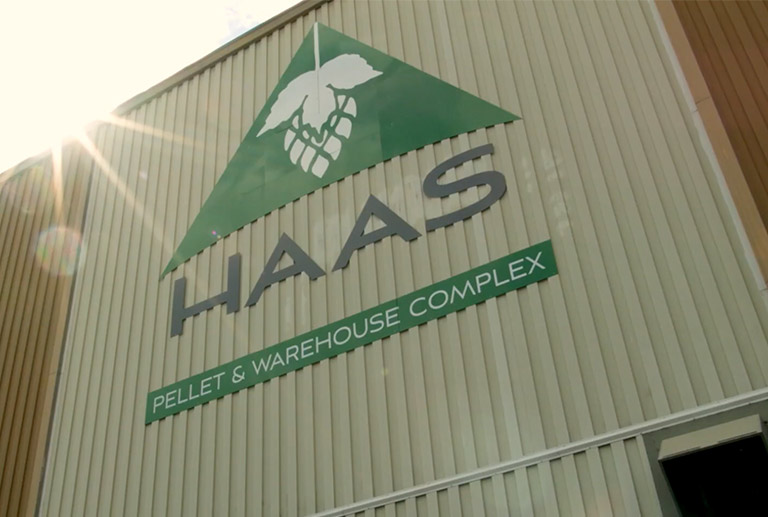It all started in 1914 when a young man from Britain, born to Austrian-American parents, found himself waiting tables in Nuremberg, Germany. His name was John I. Haas. One of his regular patrons was a mid-sized hop trader by the name of Mr. Bing who saw a spark in John (or John I., as his friends called him). Mr. Bing’s dream of expanding his hop business into the US would finally become a reality by engaging this energetic young man to do it. But John I.’s entrepreneurial spirit was too strong to contain and John I. soon realized that he was going to be the master of his own success and founded the company of John I. Haas, Inc.
1914 was all but a fortunate choice of year to found a company. It was the beginning of World War I, which was followed by Prohibition and Depression – all not conducive to support a start-up hop business. But despite all odds, his business grew because of his initiative to look for customers outside the United States. In particular, John I. built strong relationships with Canadian brewers who, not surprisingly, were benefiting greatly from American Prohibition. In 1925, Haas acquired its first hop farm in the Fraser Valley of British Columbia (which eventually grew to 1,300 acres). By 1931, John I. sensed a change in what the world’s brewers were looking for. Up to that time, the most endearing quality of American hops was their low price (based on efficient farming units and strong yields) but their quality was dismal.John I. set out to change that paradigm by buying a farm in Yakima, Washington and implementing a program to reduce the seed content and improve the picking quality of his hops.
In addition to his excellent timing (1933 was the repeal of Prohibition), brewers responded so favorably to his quality oriented hop farms (branded as Yakima and improve Golding Farms) that Haas eventually became the largest private hop grower in the world with 25 farms and almost 4,000 acres.
Over the next 40 years, Haas maintained its leadership position in America as it transitioned to the next generation. Fred Haas took over from John I. in 1964 and continued his quest of delivering quality hops to brewers around the world. During Fred’s time at the helm of the company, Haas expanded its product portfolio into extracts, which laid the foundation for innovative refined hop products for the next decades. It was the US processing capabilities of Haas that piqued the interest of another market leader, namely Joh. Barth & Sohn, Germany, under the leadership of Henry Barth. As much as Henry Barth and John I. were the fiercest of competitors, Fred Haas was able to find common ground and, having no children of his own, saw a continuation of his company in the hands of the Barth family that started in the hop business already in 1794.
The result was that in 1977, John I. Haas became part of the Barth-Haas Group – the world’s leading hops supplier.
In the years that followed, Haas maintained our passion for innovation. In the 1980’s, we began the first private hop breeding program in the industry. In the next decade, we introduced the breakthrough hop varieties Chelan and Millennium. And at the beginning of the new century, we partnered with Select Botanicals LLC to create a joint venture called the Hop Breeding Company LLC which created the highly successful varieties Citra®, Mosaic® and Equinox®.
Today, the John I. Haas company continues to lead the way. In 2013, Haas opened the Innovations Brewery inside our recently opened Innovations Center in Yakima, Washington. This 2.5- hectoliter research brewery has the advanced capabilities that allow our brewmasters to work with commercial brewers large and small to develop beer formulations that utilize new hop varieties, hop products and innovative flavor concepts.
In 2014, Haas celebrated our 100th anniversary. And while a lot has changed since John I. started his hops business back in 1914, we are certain that if he were alive today, he would see the same obsession with innovation, quality and service for which he set the standard from the very beginning.
